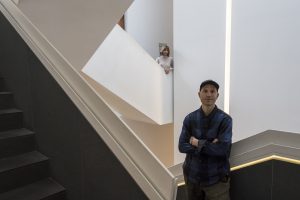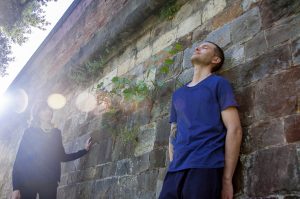 A mother wrote to me: Addiction is a humbling experience – it brings us to our knees – literally! All we can do is get down on those knees and ask God to take care of our addict, “Let Go and Let God.” We learned this the hard way because before we came to the ‘rooms’ we thought we could control it. I remember my first meeting when a wonderful lady put her arm around me and said, “You didn’t cause it, you can’t control it and you cannot cure it.” This was immediately a relief to me. Up until then I believed I had failed my son and carried so much guilt for his addiction.
A mother wrote to me: Addiction is a humbling experience – it brings us to our knees – literally! All we can do is get down on those knees and ask God to take care of our addict, “Let Go and Let God.” We learned this the hard way because before we came to the ‘rooms’ we thought we could control it. I remember my first meeting when a wonderful lady put her arm around me and said, “You didn’t cause it, you can’t control it and you cannot cure it.” This was immediately a relief to me. Up until then I believed I had failed my son and carried so much guilt for his addiction.
My reflection: During many of the years of my son’s fourteen-year heroin addiction, I thought it was my fault because I must have failed him. Thoughts plagued me, “I should have spent more time at home,” “I worked too much,” “I punished him instead of listening,” and “If I had interceded earlier, the addiction wouldn’t have taken root.”
Today’s Promise to consider: We often blame ourselves for our loved one’s addiction, convinced we’ve done something wrong. In the rooms of Al-Anon, we learn that we didn’t cause it, we can’t control it, and we cannot cure it, but that we can contribute to it. Today, I will give up my feelings of guilt. I will learn how to support my child as HE works to find sobriety and to live in the solution.

 A mom wrote to me, I made this from your blog entry, The Two Sides of Addiction. The quote is a reminder to always love my addicted child and that I should never be ashamed because of it.
A mom wrote to me, I made this from your blog entry, The Two Sides of Addiction. The quote is a reminder to always love my addicted child and that I should never be ashamed because of it. A mother wrote to me, ‘Letting go and letting God’ must have no strings attached, that is, any expectations of outcomes. Death is a very real outcome in our stories. I remember when a friend confronted me with this. Yes, it is terrifying, and I lived in fear and worry for many years, often reacting in unhealthy ways, trying to fix and control. When I realized nothing I did made my son’s situation any different and, in fact, often made things worse, I hit my bottom. I had to save myself. This did not mean I turned my back on my son. I talked with him often, but I stopped trying to determine if he was sober or if he was using. I realized that I was powerless over another human being, no matter what the situation.
A mother wrote to me, ‘Letting go and letting God’ must have no strings attached, that is, any expectations of outcomes. Death is a very real outcome in our stories. I remember when a friend confronted me with this. Yes, it is terrifying, and I lived in fear and worry for many years, often reacting in unhealthy ways, trying to fix and control. When I realized nothing I did made my son’s situation any different and, in fact, often made things worse, I hit my bottom. I had to save myself. This did not mean I turned my back on my son. I talked with him often, but I stopped trying to determine if he was sober or if he was using. I realized that I was powerless over another human being, no matter what the situation.
 A mom wrote to me: When people at work talk about their kids and grandkids, I feel myself die inside and hope they don’t ask me about mine because I feel such sadness, shame, and embarrassment. I know my husband and I can’t let our son’s choices dictate our happiness, but it’s so hard to carry on with everyday life when I’m screaming inside with sadness and worry. The holidays are supposed to be a joyous time, but I feel despair.
A mom wrote to me: When people at work talk about their kids and grandkids, I feel myself die inside and hope they don’t ask me about mine because I feel such sadness, shame, and embarrassment. I know my husband and I can’t let our son’s choices dictate our happiness, but it’s so hard to carry on with everyday life when I’m screaming inside with sadness and worry. The holidays are supposed to be a joyous time, but I feel despair.  I wrote this in Stay Close: During the Christmas of 2006, when neither son came home for our large Italian family gatherings, the grandparents, uncles, aunts, cousins, and friends didn’t know what to do. My brothers didn’t know what to say. They didn’t even know whether to invite me to the festivities or not. The cousins were confused: Could they ask about Jeff or would it be kinder to leave him out of the conversation?
I wrote this in Stay Close: During the Christmas of 2006, when neither son came home for our large Italian family gatherings, the grandparents, uncles, aunts, cousins, and friends didn’t know what to do. My brothers didn’t know what to say. They didn’t even know whether to invite me to the festivities or not. The cousins were confused: Could they ask about Jeff or would it be kinder to leave him out of the conversation? Gabor Maté
Gabor Maté A son of alcoholic parents wrote to me: My parents struggled with alcoholism for most of their adult lives. Alcohol was a curse on my family, but we learned to “stay close” and support one another. My parents were in pain. It is not our place to judge.
A son of alcoholic parents wrote to me: My parents struggled with alcoholism for most of their adult lives. Alcohol was a curse on my family, but we learned to “stay close” and support one another. My parents were in pain. It is not our place to judge. 
 A mother wrote to me: My son goes to meetings, talks with his addiction counselor, and is working with his psychologist to help him with his anxiety. I’m hopeful because he is keeping his appointments and seems like, this time, he wants to change. Of course the other part of me keeps waiting for the hammer to fall, for him to slip. It’s hard to continue to fight for my recovery and to support him as he fights for his.
A mother wrote to me: My son goes to meetings, talks with his addiction counselor, and is working with his psychologist to help him with his anxiety. I’m hopeful because he is keeping his appointments and seems like, this time, he wants to change. Of course the other part of me keeps waiting for the hammer to fall, for him to slip. It’s hard to continue to fight for my recovery and to support him as he fights for his.
2 Comments.
View Comments | Leave a Comment